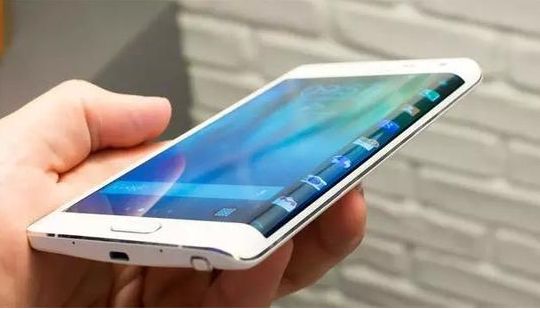(单词翻译:单击)
听力文本
This is Scientific American — 60-Second Science. I'm Christopher Intagliata.
One of the things that makes your smartphone so smart is that if you pull it out in the sun, it senses that—and dials up the screen brightness to compensate. But it's not a perfect solution.
"First of all it's still not bright enough—you have to remember how respectable sunlight is." Shin-Tson Wu, a physicist at the University of Central Florida. The other problem, he says of the brightened screen, is it kills the battery.
So Wu and colleagues have fabricated a battery-sparing alternative: an antireflective screen coating. Based on the eyes of moths.
"Nature is so rich! We can learn a lot from nature."

The thing Wu and others have learned about moth eyes, is that they're bumpy, studded with tiny projections. That uneven surface reduces the reflection of light off their eyes—thought to help the bugs evade predators, and see better in low light.
So Wu and his team built a similar surface with tiny dimples, to cut down on glare. He says the dimpled coating could boost the readability of a screen by five to 10 times, compared to a normal smartphone screen. The details are in the journal Optica.
The tech hasn't been commercialized yet, and that could take a few years. Which gives researchers time to take advantage of another property of these surfaces: they’re flexible. Meaning the possibility of curved or bendable displays. Combine that with the bendy batteries we reported on in a recent podcast, and it looks like the smartphones of the future could be set for a real metamorphosis.
Thanks for listening for Scientific American — 60-Second Science Science. I'm Christopher Intagliata.
参考译文
这里是科学美国人——60秒科学。我是克里斯托弗·因塔利亚塔。
智能手机的其中一个智能表现是,如果你把手机放在阳光下,它会有感应,然后它会提高屏幕亮度来应对变化。但这并不是完美的解决方案。
“首先,手机屏幕依然不够亮,你要记住阳光有多强烈。”吴诗聪是中佛罗里达大学的物理学家。他表示,屏幕亮度增加的另一个问题是加快电池的耗损。
吴诗聪和同事制作了节省电池的替代品:防反光屏幕涂层。其设计灵感来自飞蛾的眼睛。
“大自然是如此丰富!我们可以从自然中学到很多东西。”
吴诗聪和同事发现,飞蛾的眼睛表面凹凸不平,布满了微小凸起。这种凹凸不平的表面会减少眼睛的光反射,人们认为这能帮助飞蛾躲避捕食者,也能使它们在弱光条件下看得更清楚。
吴诗聪和他的团队建造了一个类似的表面,上面也有小的凹陷,以减少反光。他表示,与普通的智能手机屏幕相比,凹凸不平的屏幕涂层能使屏幕的可读性提高5到10倍。详细研究内容刊登在《光学设计》期刊上。
这项技术还未被商业化,而其商业化过程可能需要几年的时间。这使研究人员有时间去利用这种表面的另一特性:柔韧性。这意味着曲面屏幕或可弯曲屏幕可能被创造出来。我们在最近的播客中报道过可弯曲电池,将这种屏幕和可弯曲电池结合起来,看起来未来的智能手机可能真的要变形了。
谢谢大家收听科学美国人——60秒科学。我是克里斯托弗·因塔利亚塔。
译文为可可英语翻译,未经授权请勿转载!
重点讲解
重点讲解:
1. first of all 首先;
例句:First of all, could I begin with an apology for a mistake I made last week?
首先,请允许我为上周犯下的错误道歉。
2. be studded with 布满…的;有很多…的;
例句:The sky was studded with twinkling stars.
天上缀满了星星。
3. cut down on 削减;减少使用;
例句:We must cut down on the amount of material we use.
我们必须削减原料使用量。
4. take advantage of 利用;
例句:You can take advantage of this for your mobile applications.
您可以将这一优势用于您的移动应用程序。


